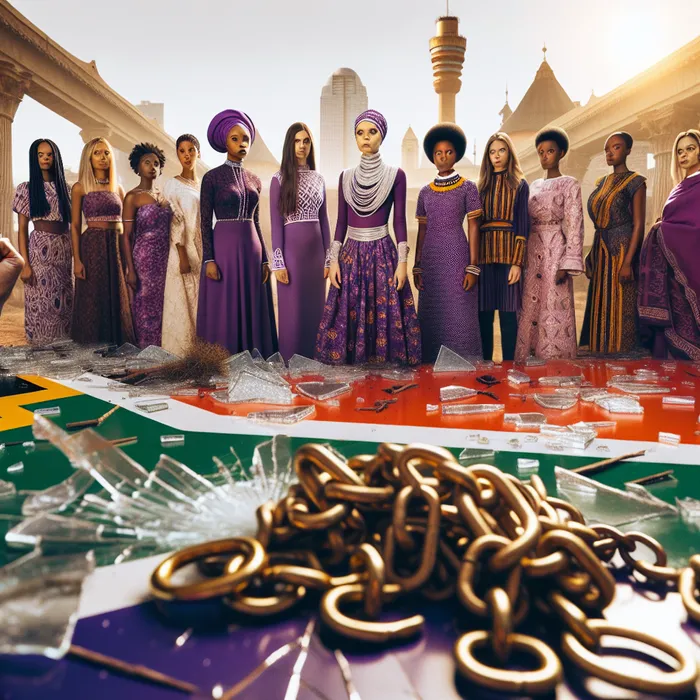
Reflecting on Women's Month in South Africa, Thelela Ngcetane-Vika and Rev Storia Seitisho explore the significant strides made towards gender equality since apartheid, while also confronting the harsh realities of ongoing struggles, including gender-based violence and systemic inequality
Image: Ron Ai
By: Thelela Ngcetane-Vika and Rev Storia Seitisho
As Women's Month in South Africa draws to a close, it offers a potent, if bittersweet, opportunity for reflection. The progress made since the dismantling of apartheid is undeniable: a constitution guaranteeing gender equality, increased representation in politics and business, and a burgeoning feminist movement. Yet, to declare unqualified success is a dangerous simplification of a narrative that risks silencing the persistent struggles women face in a nation still grappling with deep-seated inequalities, femicide, among others.
In a sense, the struggle for total emancipation must and should continue, lest it becomes a colossal failure and betrayal to the women of the 1956 March who courageously faced Verwoerd and his apparatus. While commemorating Women’s Month is significant, the celebratory rhetoric by politicians often obscures the stark realities.
Noting positions women hold in government, Corporate, and indeed in most spheres of South African society, it is patriarchal structures within broader society that constrain their agency. The glass ceiling, while may be cracked, but the pieces remain stubbornly intact, with limiting representation at the highest echelons of power and entrenching pay gaps across sectors.
The fact that 30 years later, we have not been able to have a woman president is reflective of the pervasive nature of patriarchy, which belies the narrative of empowerment and often overlooks the intersectional nature of misogyny and oppression.
Women across all spheres and Black women, in particular, are overburdened by unique and compounded forms of marginalization that render generalized pronouncements of progress meaningless. More urgent is the scourge of gender-based violence, a pervasive lurking shadow that haunts South African society and stands as a stark counterpoint to any celebration of progress.
The shockingly high rates of rape, domestic violence, and femicide expose the fragility of legal protections and the deep-rooted corruption that permeates social structures. While legislation like the Domestic Violence Act exists, its implementation remains woeful due to under-resourced police forces, inefficient judicial processes, and a culture of impunity.
This persistent violence is not merely a matter of individual acts; it is a systemic failure that demands a radical reassessment of the political will, societal norms, and attitudes.
Economic empowerment, frequently touted as a key measure of progress, presents a complex picture. While some women have achieved economic success, the majority remain trapped in precarious employment, burdened by the double shift of poorly-paid work and unpaid domestic labour. The legacy of apartheid continues to manifest in stark economic inequalities along racial and class lines, disproportionately impacting women's access to resources, education, and opportunities.
However, to truly celebrate Women's Month, we must move beyond celebratory rhetoric and confront the uncomfortable truths. We need to acknowledge the unfinished business of gender equality, critically examine the systemic failures that perpetuate inequality, and demand transformative change. Only then can we move beyond a narrative of superficial progress and work towards a truly equitable future for all South African women.
The journey from struggle to success requires not just incremental changes but a fundamental and radical reshaping of power structures and societal norms. The fight continues – Aluta continua.
* Ngcetane-Vika, PhD, is an academic at the Wits School of Governance whose research focuses on the nexus of Governance, International Law, Security, and Gender studies. RevStoria Seitisho is a Methodist Minister who is a Feminist Theologian
** The views expressed do not necessarily reflect the views of IOL or Independent Media.
IOL
Related Topics: